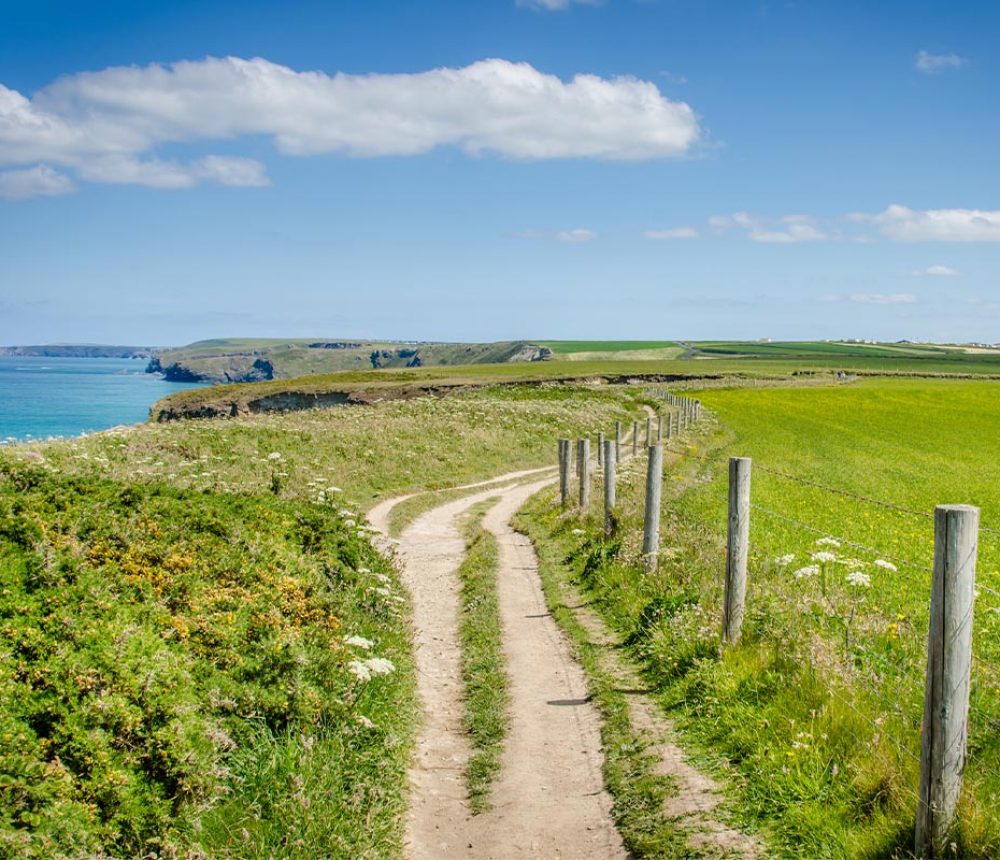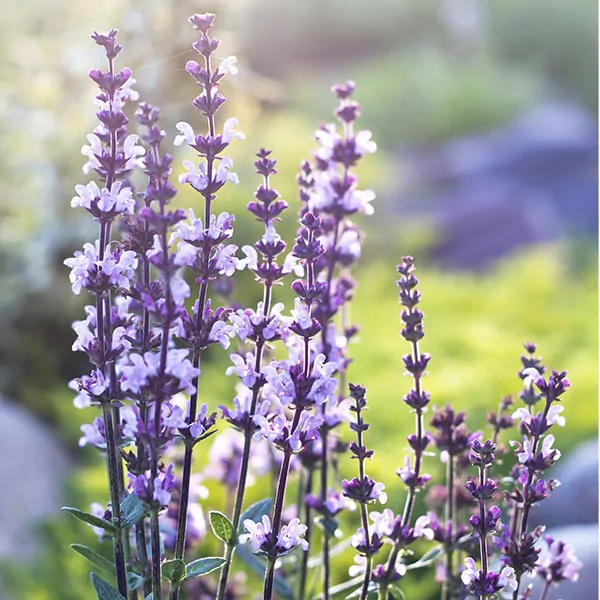
As any sailor knows, you can smell the land long before you see it. This is particularly apparent in the Mediterranean Sea, where you are surrounded by the aromatic coasts of Spain, France, Italy, Greece and their islands. The baking heat forces the scents of pine and herbs from the leaves and flowers of the land, creating a mirage of dizzying fragrance. The Mediterranean climate is the perfect mother for lavender, marjoram, oregano, sage, rosemary, tarragon, thyme and other scented photo-synthesisers. These plants have adapted to the cripplingly dry summers, and milder wetter winters of the basin. The main culprit of these Mediterranean conditions is the subtropical ridge, which extends towards the north during the summer and drifts south during the winter.
We are lucky enough here in at Trelonk to experience the Cornish microclimate, that mimics the conditions of the Mediterranean to an extent that allows for similar plants and herbs to be productive in our soils. In Cornwall, it is the Gulf Stream that is responsible for these warmer conditions and enables us to claim the warmest and sunniest climate in the UK.
Researchers from the University of Exeter have even classified the Cornish microclimate as subtropical (as of the year 2000), as the average temperatures remain above 10°C for more than seven months of the year. Despite the warmth, Cornwall suffers significant rainfall, with the yearly average of 37 inches of rainfall as compared to the UK average of around 34 inches. While the days of Cornish mizzle may depress the locals, the plants are rejoicing. These mild, wet and warm conditions enable a variety of exotic plants to grow. Sunflowers, maize, grapevines and tea are already grown here in Cornwall, but there is the potential for so much more.(1)
Trelonk is nestled within the folds of the Roseland Peninsula, which has an even milder climate than its surroundings. This microclimate within the Cornish microclimate, and the shelter that the valleys of the Fal River basin provide from relentless winds, allow the growth of many almighty subtropical plants, including palm trees, agave plants, echiums and others that would normally succumb to the frosts of a British winter. Here at Trelonk, our sunflowers, calendula and borage, which are native to the warmer climes of the Mediterranean and South America, have flourished, enabling us to create powerful carrier and essential oils. In pursuit of capturing the maximal potential of our unique weather conditions, we are having a new range of herbs and crops delivered to the farm. At the beginning of May, clary-sage and mint plugs arrived to be nurtured in our nutritious Trelonk soils.

An additional and somewhat unexpected benefit of clary-sage is that it is infamous for being deer proof. This will be invaluable here on the Roseland where the deer, as cheeky yet formidable plant munchers, run rife in the shadowy corners of the farm. All of these properties should mean that our clary-sage should excel here on the farm, and we can’t wait to experiment with its oils and terpenes to produce the ultimate wellbeing essences.
(1) Featured news – Subtropical Cornwall climate could mean exotic new crops – University of Exeter
(2) https://pubmed.ncbi.nlm.nih.gov/23360656/
(3) https://pubmed.ncbi.nlm.nih.gov/20441789/
Disclaimer: Our products are not intended to prevent, treat or cure any disease or serious illness. If you have any health concerns please contact your doctor or pharmacist.
© 2022 TRELONK